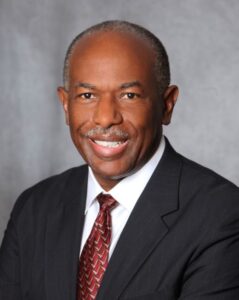 2 min read September 2022 — In an interview with Invest:, James Hildreth, president and CEO at Meharry Medical College, discussed the college’s partnership with the NFL, its commitment to service and the community and the decision to give students $10,000. “This was a way of saying, ‘We see you. We value what you are doing,’” he said.
2 min read September 2022 — In an interview with Invest:, James Hildreth, president and CEO at Meharry Medical College, discussed the college’s partnership with the NFL, its commitment to service and the community and the decision to give students $10,000. “This was a way of saying, ‘We see you. We value what you are doing,’” he said.
What is the impact of the college’s partnership with the NFL?
I am very excited about the partnership with the NFL because being a physician for a professional sports team is a really exciting thing to do. We interact with some amazing athletes on a daily basis. Many kids from minority communities don’t understand that this job could be a possibility for them. We try to help kids build awareness of these particular roles, so they can see themselves there in the future. We are doing something similar with our partnership with middle schools. Our dental students, medical students and research students interact with fifth and sixth graders so that those kids can see someone who looks like them already in these professional positions. They can see it and believe that it is possible for them. This is the approach we are taking, so we can illustrate to employers and organizations that there are high-quality individuals out there, they look like me and they can make a difference.
What was behind your decision to give students at Meharry Medical School $10,000?
I tell people all the time that Meharry exists for the students we teach and the patients we care for. My job as President is to do that job for those two groups. Our students are unusual in the sense that they are committed to serving others, particularly in underserved communities and minority groups. During the pandemic, our students were out there manning the testing sites and signing people up for vaccination.
Our students have a great deal of debt because many come from disadvantaged backgrounds. They often rack up $300,000-$400,000 in debt. When we received the relief funds, we were told we had to use the money directly for student support but, otherwise, we could use those funds how we wished. I thought it would be good to give them $10,000 toward their debt and educational expenses and other pandemic hardships. It was motivated by knowing our students and their commitment to service but also it was driven by the amount of debt that they graduate with. This was a way of saying “We see you. We value what you are doing.” If someone has $200,000 in debt and we give them $10,000 that might not seem like a lot, but it was more to recognize them and show them we value what they are doing for the community. Our students are amazing, and I wanted to recognize that in a material way.
What has driven the growth of Meharry Medical College?
The pandemic has revealed many things to the nation but mainly it has highlighted the chasm in the health status of different population groups. If you happen to be Black, or indigenous, your chances of being affected by COVID-19 were much greater because of various underlying conditions. Many diseases are more prevalent in minority communities, so we thought our mission was to be at the forefront of these issues and to make a difference for these groups. During COVID-19, the whole country got to see Meharry for the first time as we truly are and as we have been for 146 years.
This year, we received a $20 million gift from MacKenzie Scott, which was great because she doesn’t take solicitations. She has an organization that researches the best organizations. Her team told us that they were impressed by our commitment and how we live up to a legacy of supporting the community. This was the basis for our gift. It is validating and shows our legacy is alive and thriving. We stepped up to the plate for the COVID-19 response and we did some good in the world. We are going to use it to drive forward our 2026 vision. That year is significant to us because it is our 150th anniversary. Our 10-year strategic plan leads up to 2026 and we will be totally transformed when it is done. We are going to start a school of public health and much of MacKenzie Scott’s gift will go to that in 2025.
How has the healthcare industry in Middle Tennessee progressed over the last 12 months?
As you already know, staffing is an issue. The expectations of our staff in terms of flexibility and work schedules have completely changed. We have students and patients who require a presence of staff, but many things don’t require people to be on campus at all times. We are trying to figure out the right balance between these two things. This is true of many health organizations right now, with staffing being a huge issue, especially with nurses and sometimes with physicians.
Things have certainly changed. Primary care is much more based on technology now, especially when you consider that a telemedicine visit costs the same as a physical office visit. Technology can help to solve problems with equity as well. Technology is the major factor driving disparities during COVID-19 in both healthcare and education, so I think that is a major issue we must deal with. We must close the technology gap to fix these issues.
For more information, visit:
